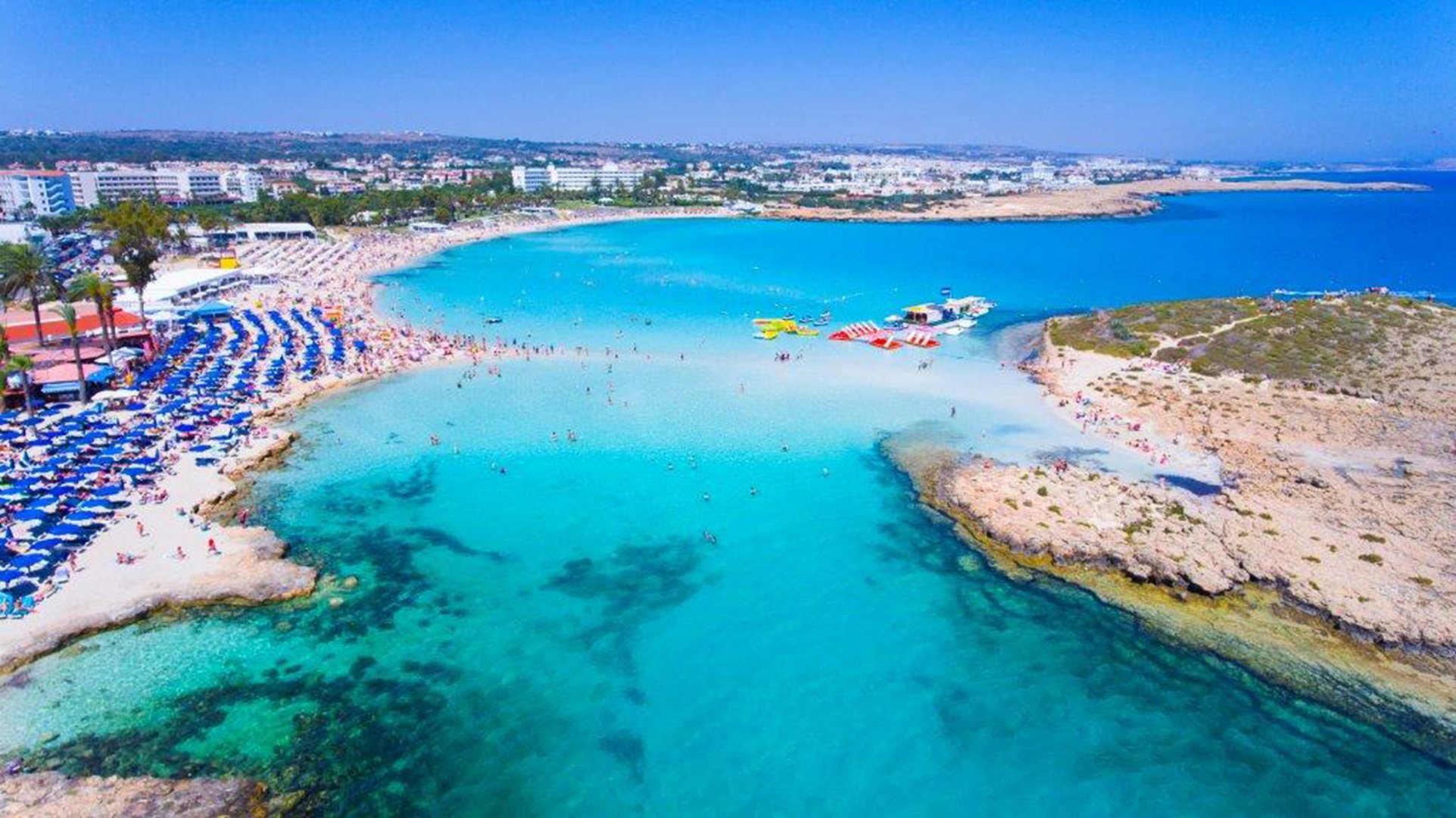By John Ioannou
It’s the end of another hard summer again in Cyprus and on every trip to the beach we encounter the familiar water sports operator with their impressive speed boats lined up on shore. As we wait in the scorching heat for a sunbed we wander over, and behind rows of life vests hanging out like dried octopus we find a price board with photos of grinning tourists hurtling across the water. The prices elicit a wince, or at best a chuckle. €50 for 15 minutes on a jet ski. €180 for a half hour speed boat ride. Or the latest offer: €200 for 20 minutes on a Flyboard, a new contraption where you rocket across the sea’s surface on something that looks like a superhero’s jetpack. We drift away, finally finding a free bed where we can dump our stuff and at last plunge into the cool sea. As we wade through floating layers of boat oil to swim in deeper water, the roar of speedboats and jet skis continues and the smell of burnt petrol drifts across on the breeze. We swim cautiously, one eye always on the horizon, just in case a random jet ski veers off course and turns us into shark chum.
Ah yes. Just another relaxing day at the beach, where many of us have become so de-sensitised to the pollution, danger and inconvenience of water sports that we no longer notice it, nor do we acknowledge the immense environmental damage they cause. We would never tolerate quad bikes or scramblers roaring past our tents while we camped in a pristine forest, so why do we accept it on the beach?
Is it time for a rethink?
Motorised water sports took off worldwide during the tourist boom of the 1980s and grew rapidly, fuelled by cheap petrol from that decade’s historic crude oil glut. In Cyprus all main tourist beaches were assigned generous areas for water sports operators and business boomed until the late 90s when the demographics and tastes of our guests began to change. Tourists were maturing and had begun to seek out more relaxing and culturally authentic experiences, and many became risk averse as their age and income grew. The first real cracks began to show in the mid-2000s when crude oil prices reached historic highs and escalating petrol and VAT costs sank a once profitable sector.
Today, many tourists will enjoy their holidays without any urge to rent a jet ski or speedboat. Sit and watch on any busy beach in summer and you will see that most customers are young, local and low-income, opting for one of the cheaper group activities like banana boat rides rather than pricey paragliding or jet skiing. This shift has been profound and in recent years water sports operators have complained of high fuel and VAT costs and staged protests to demand greater governmental support. All this points to the difficult truth that the glory days of water sports are never coming back, and coastal municipalities must accept that the business model is no longer viable. As such, new beach management strategies must be introduced with the focus on natural and holistic experiences with minimal environmental impact.
As a first step environmental controls must be tightened, and licenses phased out. Coastal municipalities have taken over sunbed operations from private companies in recent years and seen their revenues soar, so the removal of water sports would give them much-needed space to expand these and also create opportunities for low-impact safer rentals like paddle boards and kayaks. These require little maintenance but like the simple sunbed offer potentially lucrative revenue streams.
While the economic incentives for removing water sports are huge, the environmental benefits are even more compelling. Phasing out water sports would relieve enormous pressure stresses on our marine environment and vastly improve the quality of our beachgoing experience. Our waters would be safer as high-powered watercraft would no longer share the same recreational space as swimmers, and trucks would no longer drive across beaches to tow boats in and out of the water. Less fuel emissions would mean clean sea breezes rather than toxic fumes, and we eliminate the nasty problem of oil drifting into the shallows and washing up ashore to stain the sand black – the same poisonous phenomenon we see during bigger oil spills. Moreover, decreased noise pollution and unnatural agitation of the sea would allow for the recovery and regeneration of marine life. We may also regain our hearing and again learn to enjoy calm silences or the gentle hush of waves after so many years of being tone deaf to the nonstop revving of engines.
This shift in our mentality toward public beaches will not be easy and the change must be carefully managed. Water sports operators could still serve their dwindling customer base, but away from public beaches in specially designated areas. These might be rocky shorelines close to resorts with less appeal to recreational beachgoers. Here, water sports and dive boat operators could consolidate their resources to operate joint piers. Meanwhile, incentives should be given to focus on lower impact activities such as wind sports and sailing.
So next time we stand on our favourite beach waiting for that elusive sunbed, maybe we should take a closer look at the aggravation and danger caused by water sports. And as we push to decarbonise our cities and eliminate cars in favour of eco-friendly transport, so too should we demand this approach to our public beaches. Only then can we restore and regenerate these magnificent natural playgrounds and safeguard them for future generations.






Click here to change your cookie preferences